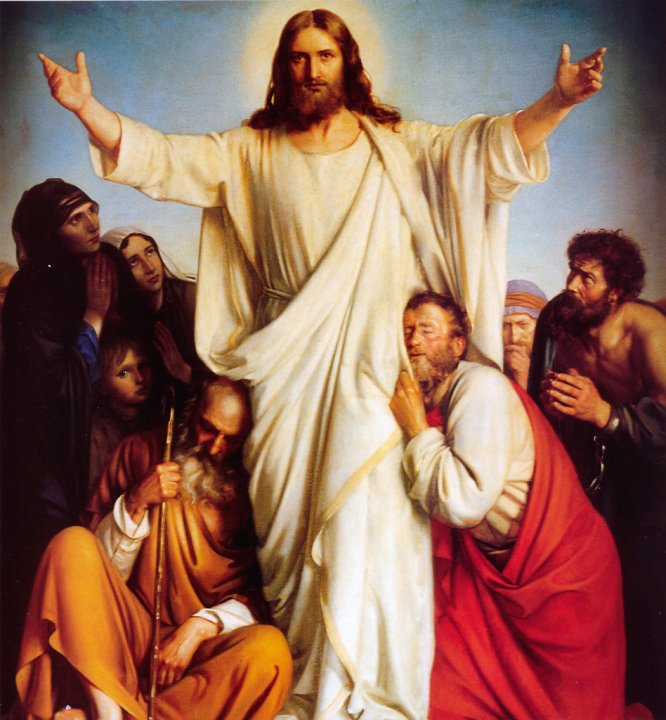17th Sunday in Ordinary Time-C
I Reading: Genesis 18:20-32: I trust my Lord will not be angry, but give me
leave to speak.
II Reading: Colossians 2:12-14: He has brought you to life with him, he has forgiven us all our
sins.
Gospel: Luke 11:1-13: Ask, and it will be given to you.
The Great Subject of Prayer, Lk 11:1-13
This
passage deals with the great subject of prayer. So we need to study time and
again and learn how to pray without ceasing in life. The prayer of a Christian
should resemble that of Christ. Jesus himself prayed often. What was Jesus’
prayer like? “Our Father” and He taught his apostles as we read in the gospel.
He taught them to pray the way he himself
did. The “Our Father” prayer as given by Luke, does not exactly coincide
with the one given by Matthew (Mt 6:9-13). Luke gives a shorter form, but the
content of both is essentially the same. Let us now examine the content of this
wonderful prayer:
a)
“Father…”- we are His loving children
b)
“May your name be held holy”
c)
“Your kingdom come”
The
second part of the Our Father is:
a)
“Gives us this day our daily bread…!”
b)
“Forgive us our sins…for we ourselves forgive..!”
c)
“Do not put us to the test…”- Give us the strength to resist temptation when
the devil tempts us. Save us from the evil one (Mt 6:13).
Jesus
taught us how to pray, how to converse with God our Father: with trust, with
gratitude, with joy, just as he himself did.
1.
Jesus prayed (v.1)
a.
The disciples asked Jesus to teach them how to pray
b.
John the Baptist had taught his disciples to pray
2.
Jesus’ model prayer (v.2-4)
a.
Thank God
1) for being our Father
2) for heaven
b.
Praise His name always and don’t hate His name
c.
Pray
1) for His kingdom
2) for daily bread
3) for forgiveness
4) for deliverance
3.
Man’s part in prayer (v.5-10)
a.
The illustration: man is to persevere and endure in prayer
b.
The point: perseverance and endurance receive what is requested
c.
The exhortation
1) ask- shall be given
2) seek- shall find
3) knock- shall be opened
d.
The answer assured
4.
God’s part in prayer (v.11-13)
a.
The illust.: God is not evil, but He is good-He is just like a father
b.
The point: God is most willing to give- especially the Holy Spirit to dwell
with man’s heart and life
Thought:
Jesus Himself prayed to the Father always and asked His power and strength to
continue His works and to do the Will of God.
Prayer
makes us closer to God and helps us to love people with forgiveness and enables
us to take up all kinds of responsibilities; even gives us lots of strength and
courage to undergo sufferings or persecutions in life.
Man/woman
is a bundle of needs; he/she needs to turn to God at every step, prayer is the
way to do so. We must approach God in prayer with respect, with trust and with
love.
